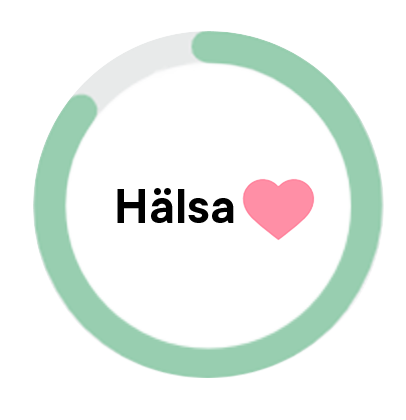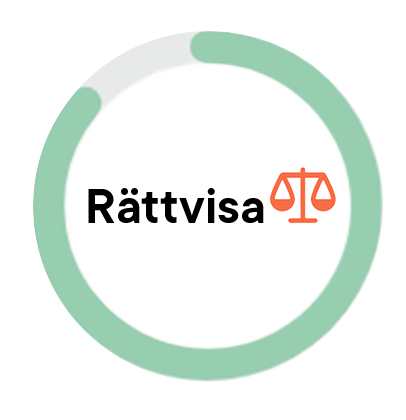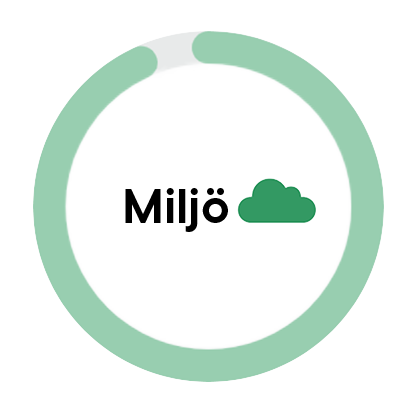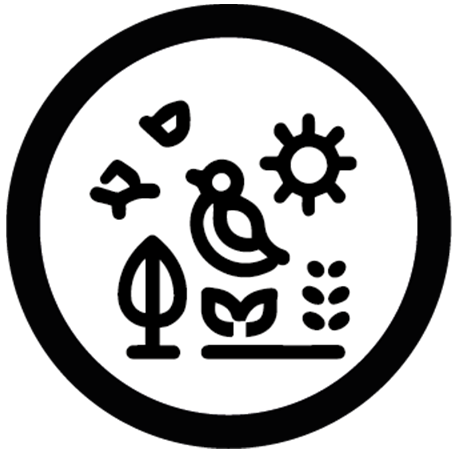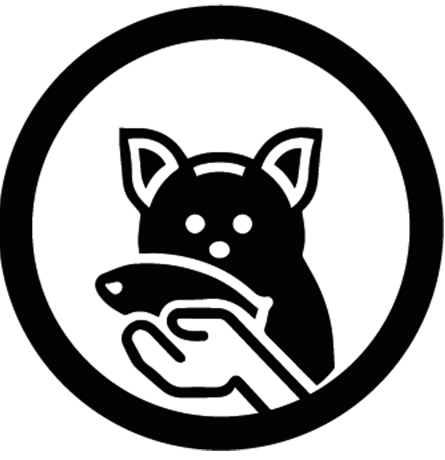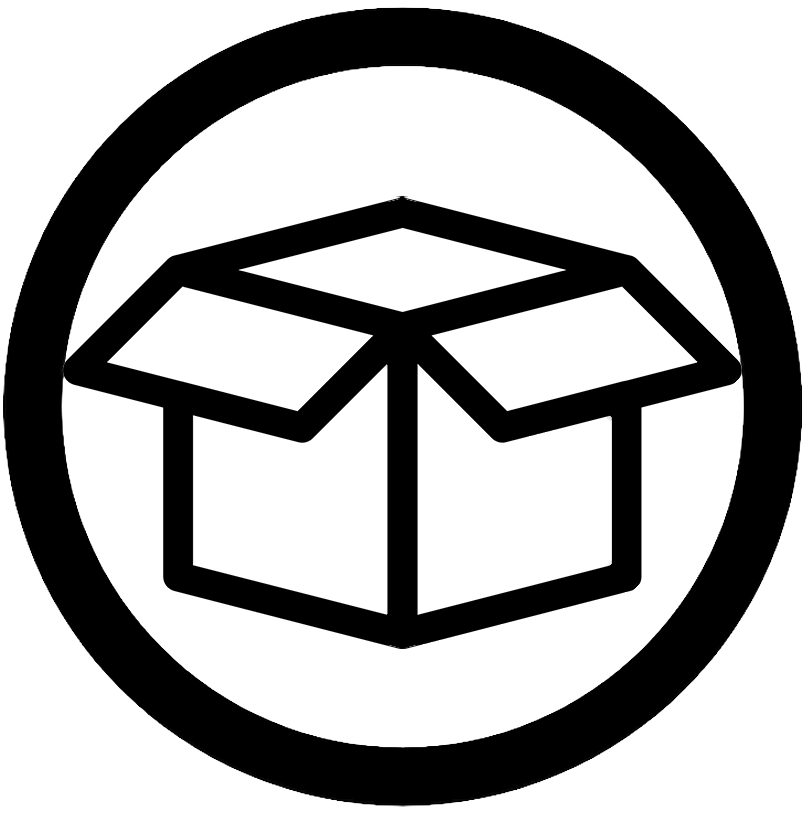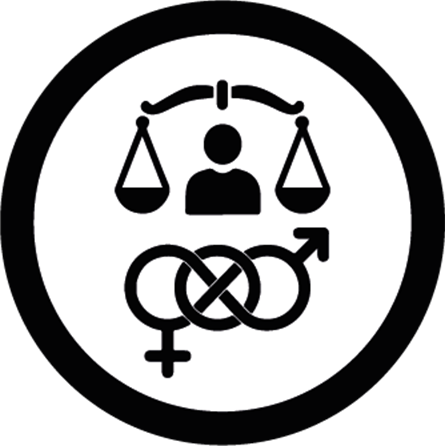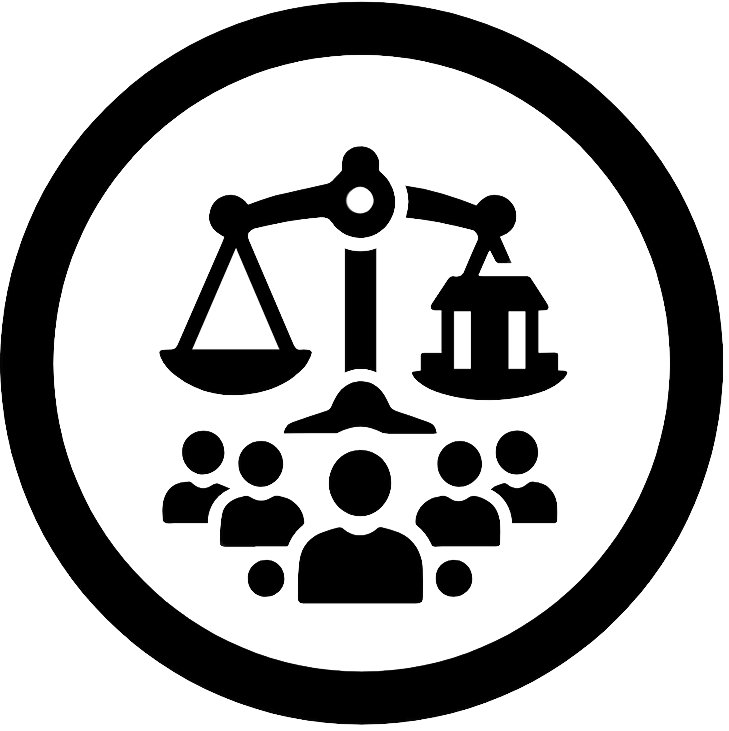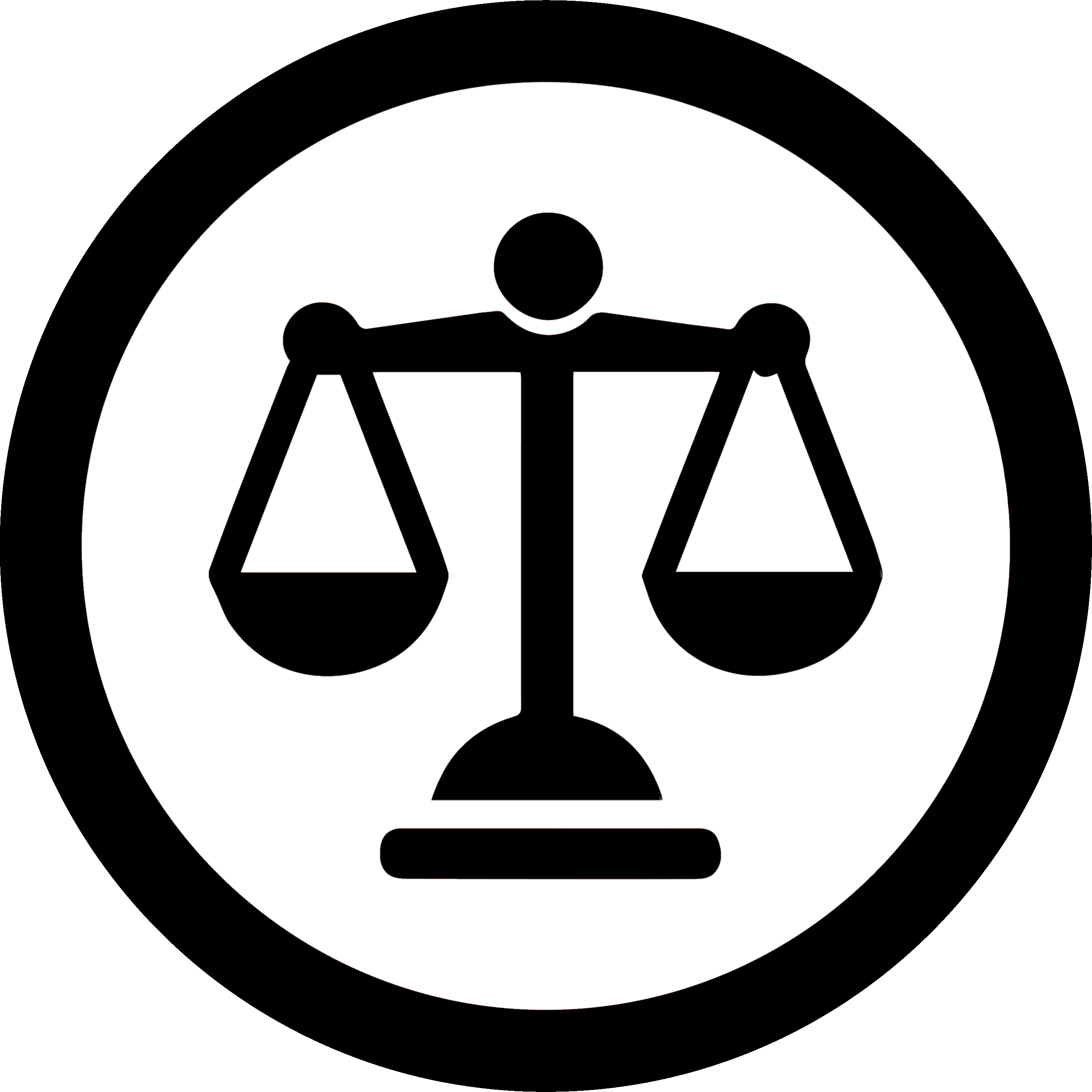Our database is at the core of all of our services. It was developed in collaboration with researchers at KTH and Dalarna University and is one of the world’s most comprehensive for food and sustainability.
The database links the ingredients in food products with information about their sustainability. All data is gathered from leading sources such as the UN Food and Agriculture Organisation (FAO), the Swedish Food Agency, the European Food Safety Authority, RISE Research Institutes of Sweden, Amfori, the International Labour Organisation, and many more.
Consupedia assigns sustainability data to each product in three steps:
We are constantly adding new data sources and parameters as scientific knowledge about food and sustainability increases. Our tools utilize the power of the database in different ways. This makes it something of a swiss army knife — versatile and razor-sharp — ready to be used for sustainable change anywhere in the entire food system.
Many years of research from KTH forms the basis for the Consupedia scoring scale 1-100, which is the best method for communicating sustainability footprint.
The advantage of this is that products with large differences in climate impact can still be placed on the same scale, but you can’t say that a product with 20 points is twice as good as one with 10 points when it comes to the climate parameter. If a regular scale were used, a large part of the products would be either at the bottom or at the top of the scale and some in between. A logarithmic scale gives a more nuanced picture of climate impact. A sustainable choice is a product with a high score, compared to other food products with lower scores.
Organic products receive bonuses on the parameters Biodiversity, Pesticides, Working Conditions, Antibiotic Resistance, Animal welfare and Over-fertilization.
Read more about our parameters here.
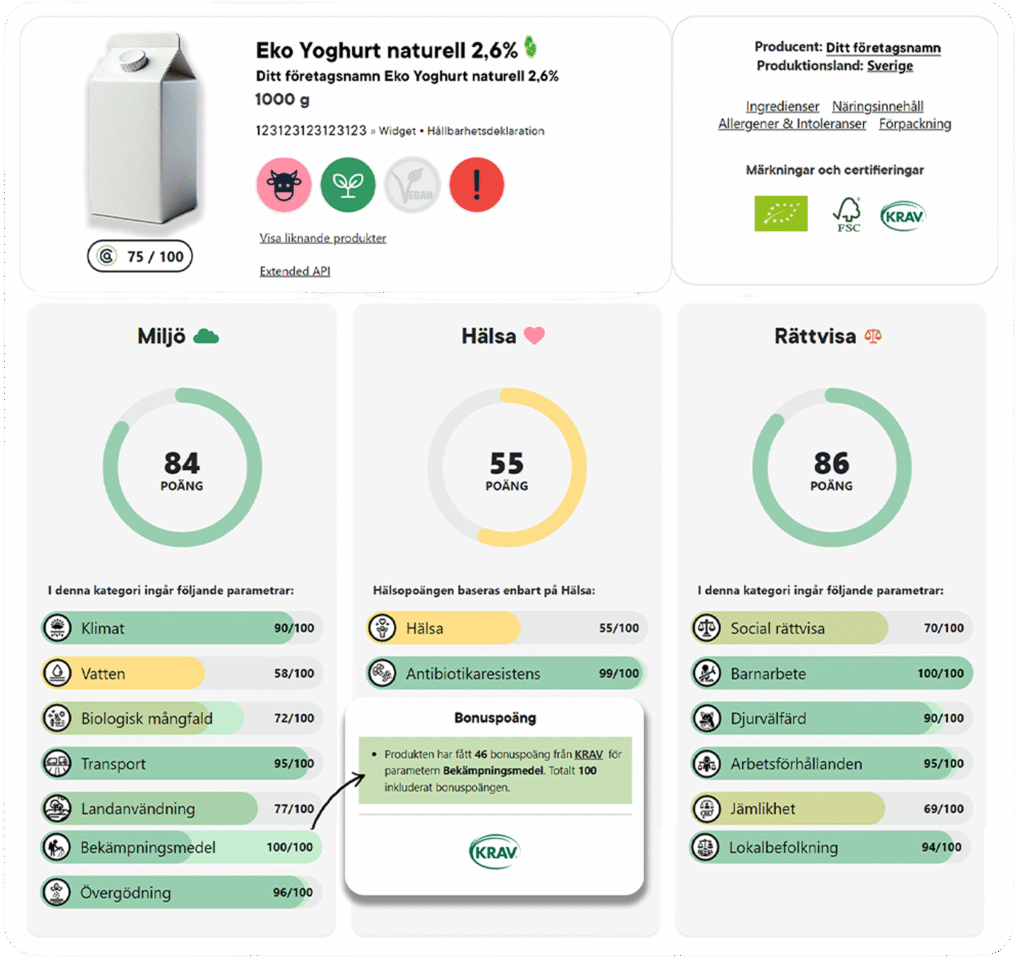
Our sustainability parameters
